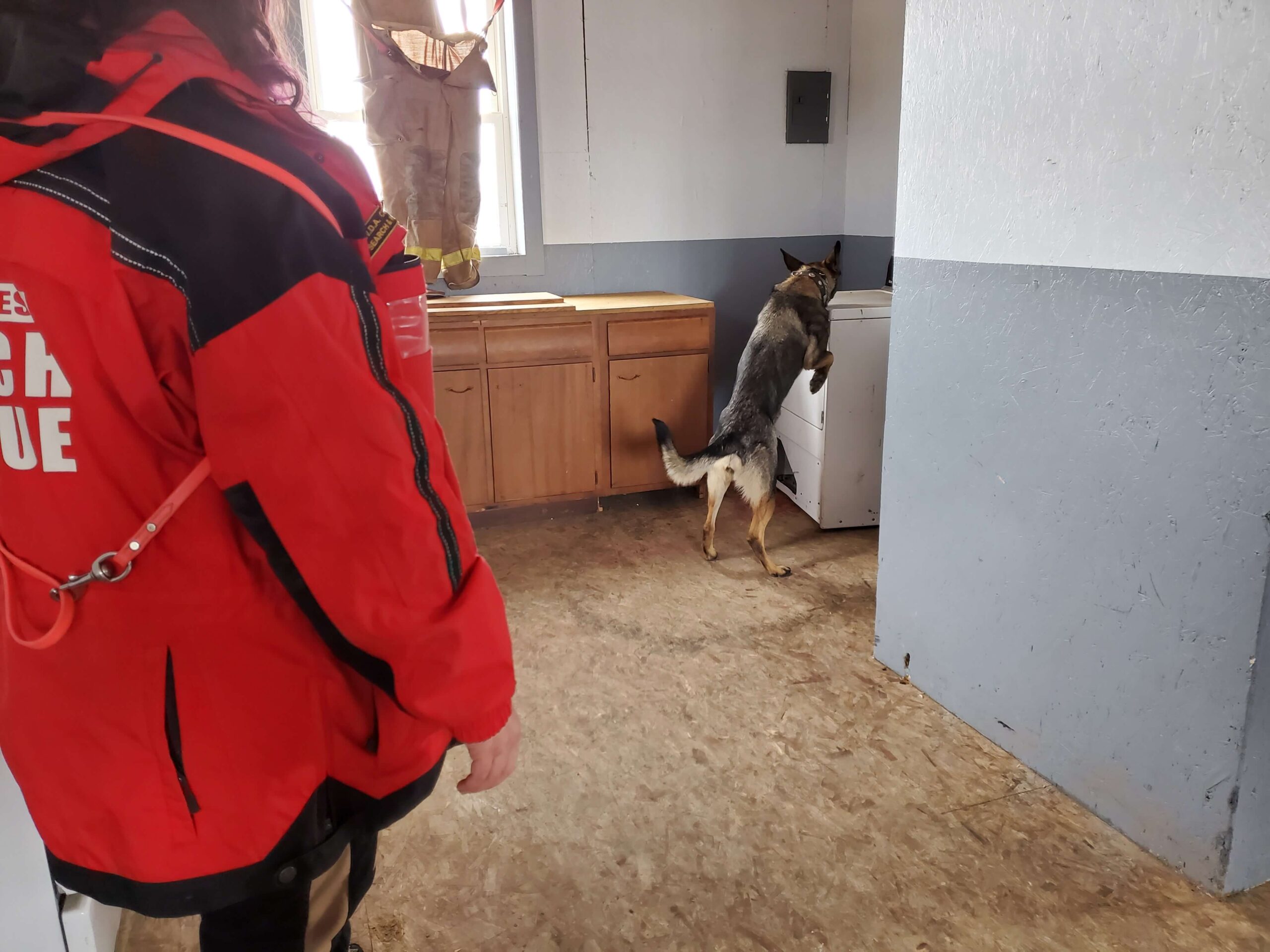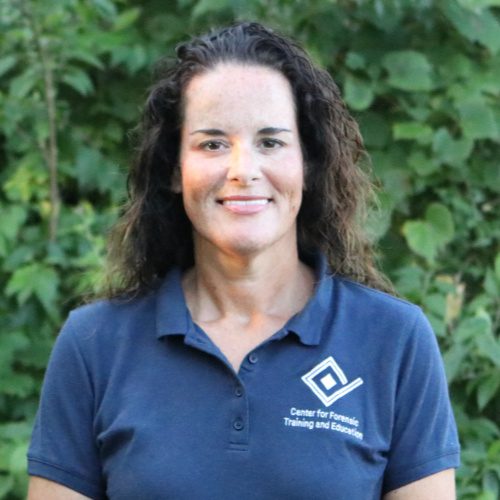Challenging Your Deployable Dog: Searches for Small Spaces

Coming To Terms With A New Reality
This week we want to look at ways we can challenge our operational or more advanced dogs while following stay at home orders. Many of us have now been practicing social distancing for well over a month. Here in Ohio we are getting ready to start our seventh week.
When all of this started, I had the same thoughts that many people had. “Oh this isn’t bad. I get to work from home full time. I’ll have SO much time to get things done. I can spend more time with the dogs, this won’t go on that long…” and on and on. But then the severity of the situation started to creep in.
The range of emotions that we all going through can be physically and mentally exhausting. Personally, there are days when I feel like superwoman; up at 5:00, finish my work for the University, catch up on all of my CFTE work, work the dogs, take a long walk, get everything done around the house and make a fantastic dinner.
Then there are days like today. It’s cold and rainy, I woke up with a headache and my motivation is nonexistent. I’m concerned for my family and friends that are at high risk for complications if they catch the virus and for the safety of all of our essential workers. I’m worried about the financial health of our country. I’m uncertain when things will even begin to start to resemble “normal” and how much will have been lost before we reach that point.
It's Not Enough To Just Maintain
Luckily, these days aren’t frequent and I know things will get better. On days like today, I am beyond thankful for my dogs. They don’t care that it’s raining, or that there’s a pandemic, or that I am stressed. With four working dogs in the house, ranging in age from 6 months to 11 years, there isn’t a lot of time for negative, unproductive thoughts. They demand my focus and attention during our training and they will outsmart me in a second if my thoughts start to drift.
Typically, we would be training off property at least two times a week. This time of year, it’s not uncommon for me to be on the road with two or more of the dogs teaching for CFTE. The dogs are training multiple times a day, interacting with other people, working around the distraction of unfamiliar dogs in new environments with a variety of training sources. All of that has temporarily come to a stop.
Getting Creative With The Space You Have
It has been pretty easy with the six-month-old and eleven-year-old, but the two operational dogs are another matter. The first few weeks at home were no problem. They were both happy to have me around and enjoyed the extra walks. But after that initial period, it became pretty evident that it wasn’t going to be enough to just maintain their training level, I had to figure out how to challenge them within the constraints we are now all currently living with.
The question: How to make training challenging when I’m staying at home?
The answer: Be very intentional in developing my training objectives and being creative with the space that I do have.
Ready For Your FREE Training
Time to get creative with your training space and the CFTE team has shared 5 training challenges that you can use to stretch your dog’s skills and keep them ready to respond to the next search.
 Deana Hudgins, CFTE Founder, has been working in Search and Rescue since 2002. She is the Executive Director and a Founding Member of Ohio Search and Recovery Canines. She is also a Canine Search Specialist for FEMA Ohio Task Force 1 working both human remains detection and live find canines. She has traveled the country as an instructor, evaluator, and facilitator for search and rescue classes and workshops. Deana specializes in human remains detection; water, land and disaster, as well as wilderness and disaster live find. She has responded to hundreds of missing person searches for local, state and federal agencies. She frequently consults as a subject matter expert for large scale training exercises and cases, providing guidance in search strategy and planning, resource management, mapping and data collection. During her years as an instructor, Deana repeatedly saw that there was a lack of resources and training opportunities to fully prepare agencies to respond to search and recovery missions. She established the Center for Forensic Training and Education to ensure that any organization involved with the search and recovery of missing persons has access to real world, hands on, custom training opportunities.
Deana Hudgins, CFTE Founder, has been working in Search and Rescue since 2002. She is the Executive Director and a Founding Member of Ohio Search and Recovery Canines. She is also a Canine Search Specialist for FEMA Ohio Task Force 1 working both human remains detection and live find canines. She has traveled the country as an instructor, evaluator, and facilitator for search and rescue classes and workshops. Deana specializes in human remains detection; water, land and disaster, as well as wilderness and disaster live find. She has responded to hundreds of missing person searches for local, state and federal agencies. She frequently consults as a subject matter expert for large scale training exercises and cases, providing guidance in search strategy and planning, resource management, mapping and data collection. During her years as an instructor, Deana repeatedly saw that there was a lack of resources and training opportunities to fully prepare agencies to respond to search and recovery missions. She established the Center for Forensic Training and Education to ensure that any organization involved with the search and recovery of missing persons has access to real world, hands on, custom training opportunities.

